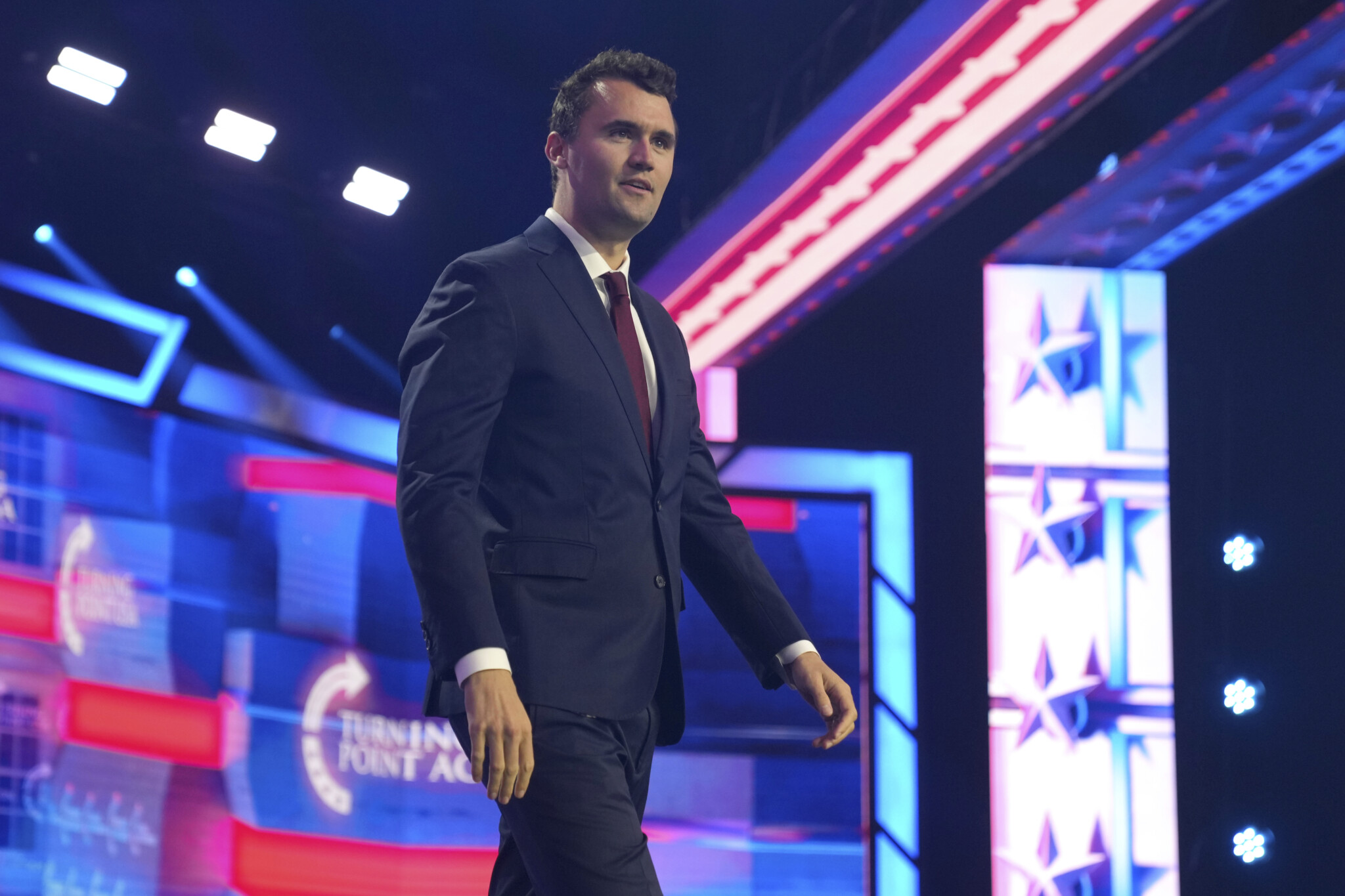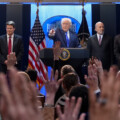The assassination of Charlie Kirk, the 31-year-old founder of the conservative youth organization Turning Point USA, is more than a singular tragedy. It’s a moment that seems to pierce the basic idea of America itself. A young father of two children under five was shot and murdered, not in a random act of violence, but for his political views and his efforts to organize around them.
At the root of the American ideal is the notion that citizens have the right and even the responsibility to argue about ideas in the public square. It’s at the heart of the American experiment and its distinctive system of competing interests and institutional checks and balances. Kirk’s murder in the act of debate represents a violation of his country’s founding compact. The assassin’s bullet may have been meant for one man, but its true target feels far larger.
This tragedy is also a grim marker of our fragmented political age. Kirk wasn’t a traditional politician. He was part of a new generation of internet-powered political influencers who exist on both the Left and Right of the political spectrum. In an era where the media ecosystem has exploded from a few consolidated outlets to myriad voices, Kirk’s stood out.
Through sheer entrepreneurial force, he built a powerful political movement of young people that played no small part in Donald Trump’s election in 2024 and the rise of a more populist American Right. He may have been the most important political organizer and commentator of his generation.
His killing signifies a dangerous new frontier: political violence is now spilling over into this new medium of political engagement. The public square is no longer just a physical stage; it is a digital arena, and its most prominent voices have become targets.
To understand the full weight of this loss, one must look beyond Kirk’s prominence. Although he was a populist and a staunch supporter of President Trump, he was also a figure who at times resisted the darker elements of the American Right. He was engaged in a battle for the future of conservatism, and to his credit, he set red lines. He positioned himself against the antisemitism, racialism, and other troubling currents on the Far Right. Kirk was, in a sense, trying to act as a gatekeeper for the populist movement he helped build.
Furthermore, he modeled a form of engagement for the young men who comprised a large part of his audience—modeling fatherhood, a loving marriage, and building a business. In an age of cynicism about online figures who chase audiences for money or influence, Kirk’s boundaries, however one viewed his politics, represented a stabilizing force in the MAGA movement now tragically silenced.
The urgent question now is what this means for America. We fear this could mark the beginning of an era of political violence reminiscent of the 1970s. The natural concern is that this atrocity leads to further escalation, triggering a chain reaction of rhetorical and possibly physical retaliation from the Right, which in turn precipitates a response from the Left, and on and on and on.
The calls for cooler heads and common ground will rightly come in the next 48 to 72 hours. But we must be honest about the cultural context of acute anger and polarization that made this possible. Will it give pause to those on the Left, where much hot rhetoric originates, and also on the Right and in the Oval Office?
The recent presidential tweet evoking images of “Apocalypse Now” in the context of the deployment of National Guard troops in Chicago and the boast “I love the smell of deportations in the morning,” was just another step in the coarsening of American political culture.
Ronald Reagan famously spoke of the United States as a “shining city on a hill.” That’s the America we believe in and that the world needs. Against a backdrop of growing coalitional dynamics between rival powers like China and Russia, a strong, confident, and united America isn’t just an American interest, but a global one. We should all want America to succeed, to overcome the zero-sum politics corroding its culture and undermining its capacity for common action.
Today, the political pall falling on the city on a hill feels darker. No matter what one thinks of Kirk and his impact on American politics, today’s assassination should worry everyone. Our civilization, in many ways, depends on America finding a way back from the brink. We can only hope that from this profound tragedy, cooler minds will prevail and political leaders will finally step forward to lead.
This commentary draws on a Hub podcast. It was edited using AI. Full program here.









